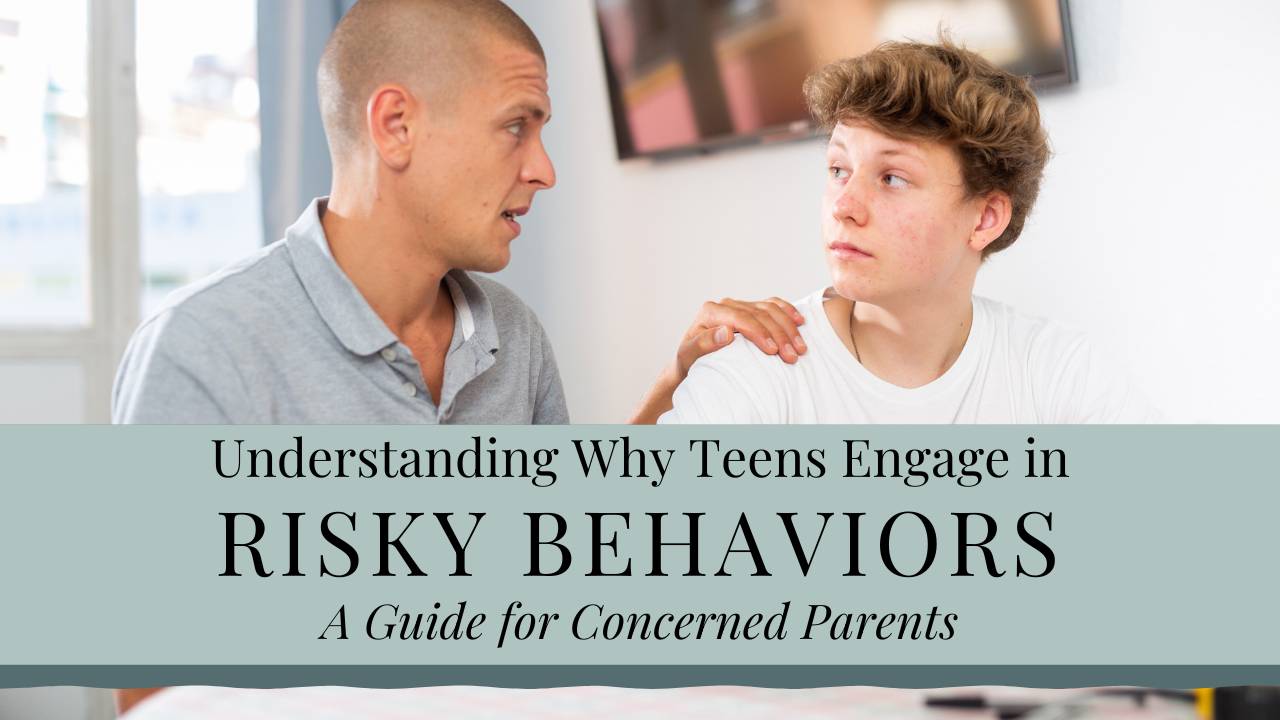Understanding Why Teens Engage in Risky Behaviors: A Guide for Concerned Parents

Watching your teen navigate adolescence can be both rewarding and concerning, especially when risky behaviors enter the picture. As parents, understanding why teens are drawn to activities like vaping, alcohol use, or drug experimentation can help you approach these challenges with empathy and effectiveness. This guide explores the science behind teen risk-taking and offers practical strategies to support your child through this critical developmental stage.
Why Teens Take Risks: The Brain Science Perspective
Adolescence brings dramatic changes to the teenage brain. Research shows that the prefrontal cortex—responsible for judgment, decision-making, and impulse control—isn't fully developed until the mid-20s. Meanwhile, the brain's reward system becomes particularly active during teen years, creating a perfect storm for risk-taking behaviors.
This biological reality means teens are:
- More susceptible to peer influence
- More likely to seek novel, exciting experiences
- Less equipped to fully consider long-term consequences
- More sensitive to social acceptance and rejection
Common Risk Factors That Influence Teen Behavior
Beyond brain development, several factors increase the likelihood of risky behaviors:
- Peer Pressure and Social Dynamics: For teens, fitting in feels essential. When "everyone else is doing it," the pressure to conform can be overwhelming. Teens may engage in risky behaviors to gain acceptance, establish identity, or avoid rejection.
- Curiosity and Experimentation: Natural curiosity drives teens to test boundaries and experience new sensations. Many view experimentation as a normal part of growing up and discovering their own limits.
- Escape and Self-Medication: Some teens turn to substances to cope with stress, anxiety, depression, or trauma. What begins as self-medication can develop into problematic usage patterns.
- Media and Cultural Influences: Media representation of risky behaviors—often without showing consequences—can normalize these activities and create misconceptions about how common they actually are.
Warning Signs Your Teen May Be Engaging in Risky Behaviors
Be alert to significant changes in:
- Academic performance
- Sleep patterns
- Friend groups or sudden secretiveness about friends
- Physical appearance or hygiene
- Mood swings beyond typical teen emotions
- Money needs or unexplained spending
- Loss of interest in previously enjoyed activities
Building Protective Factors: Practical Prevention Strategies
1. Establish Open, Non-Judgmental Communication
Create a safe space where teens can discuss difficult topics without fear of immediate punishment or lecture. When teens feel heard rather than judged, they're more likely to share their experiences and concerns.
Try This: Instead of asking "Are you drinking?" try "What do you think about kids your age who drink?" This indirect approach often leads to more honest conversations.
2. Set Clear, Consistent Boundaries
Teens need structure, even as they push against it. Establish clear rules and reasonable consequences, explaining the "why" behind your boundaries.
Try This: Involve your teen in creating family rules about substance use. When teens participate in setting boundaries, they're more invested in following them.
3. Stay Connected Through Regular Activities
Quality time builds the foundation for difficult conversations. Find activities you both enjoy and create regular opportunities for casual connection.
Try This: Car rides, cooking together, or exercising side-by-side often create natural moments for meaningful conversation without the pressure of a formal "talk."
4. Model Healthy Coping Mechanisms
Demonstrate healthy ways to manage stress, disappointment, and celebration without substances. Teens learn more from what you do than what you say.
Try This: Narrate your own healthy coping: "I had a rough day at work, so I'm going for a walk to clear my head" helps teens see alternatives to substance use.
5. Foster Critical Thinking Skills
Help teens analyze media messages, peer pressure, and risk assessment. These skills empower them to make thoughtful decisions when you're not there.
Try This: When watching shows together, discuss how substance use is portrayed: "They make drinking look fun, but what consequences aren't they showing?"
When Prevention Isn't Enough: Response Strategies
If you discover your teen is already involved in risky behaviors:
1. Stay Calm and Choose Your Timing
Reacting with intense emotion typically shuts down communication. Take time to process your feelings before initiating a conversation when both you and your teen are calm.
2. Focus on Health and Safety First
While you may want to address rule-breaking, prioritize your teen's wellbeing. Express concern about their safety rather than disappointment in their choices.
3. Seek Professional Support When Needed
Some situations require professional intervention. Counselors, therapists, and addiction specialists can provide targeted support for both teens and families.
Resources for Parents
- National Institute on Drug Abuse (NIDA): Offers research-based information on teen substance use
- Partnership to End Addiction: Provides parent coaching and support resources
- Teen Mental Health First Aid: Training for parents to recognize and respond to mental health challenges
- Family therapy options: Consider involving the entire family in the healing process.
Final Thoughts: The Power of Connection
Research consistently shows that strong parent-teen relationships are the most powerful protective factor against risky behaviors. While you can't control all your teen's choices, maintaining a supportive, loving connection gives them a secure base from which to navigate adolescence.
Remember that most teens who experiment with risky behaviors don't develop long-term problems. With understanding, communication, and appropriate support, you can help your teen develop the judgment and resilience they need to make healthier choices.
Want more parenting insights delivered straight to your inbox?
CLICK HERE to sign up for our monthly newsletter featuring expert advice, upcoming workshops, and resources for navigating the teen years.
